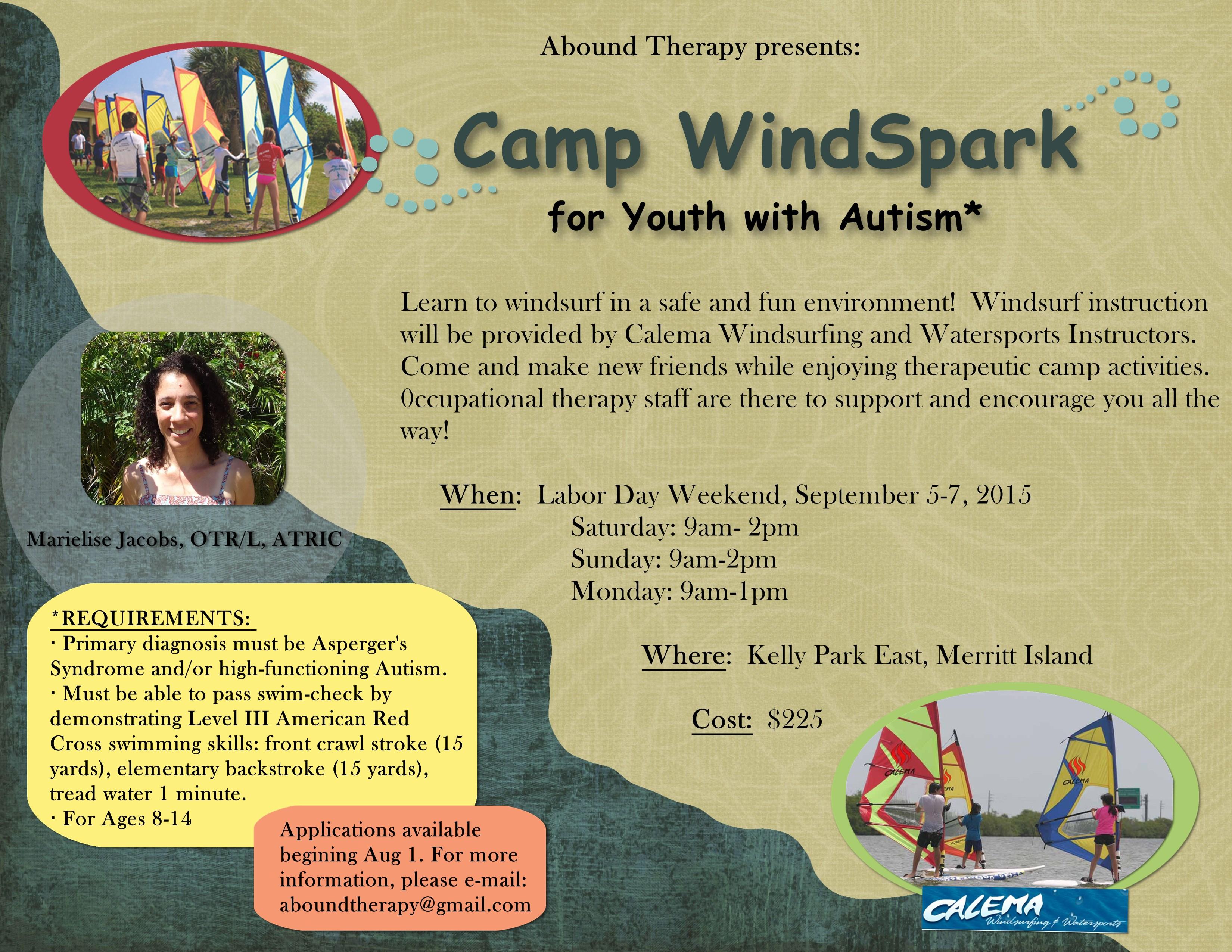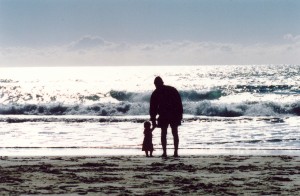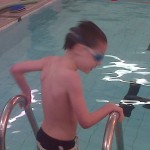My name is Marielise Jacobs. I am a pediatric Occupational Therapist. I am contacting you in hopes that you will help me to spread the word on a day camp program called “Camp WindSpark” that I’ve organized to happen over Labor Day weekend, Sept. 5-7. I have attached a flyer for you to review and hopefully share with others who may be interested. Please e-mail or call me if I can answer any questions you might have.
The camp was created as an opportunity for children/youth to be exposed to a fun, positive outdoor experience and; at the same time, to learn new skills to enhance their quality of life and improve function.
Camp WindSpark is designed to provide support to families who have children with Asperger’s Syndrome and/or high functioning Autism. Camp activities will engage the kids in a way that is meaningful, while helping them to learn and practice using skills that can be challenging such as social interaction and motor coordination. Learning to windsurf requires skills such as balance, attention, and coordinating a sequence of movements. Volunteer OT staff will be assisting campers during windsurf instruction provided by Calema Windsurfing. OT staff will lead land-based games and crafts that promote sensory and social skills in a real world environment during the camp program.
Research shows that kids with Autism often have less opportunity to participate in leisure and outdoor activities.
Research has also shown that spending time outdoors is a great way to promote health. As an Occupational Therapist with a former career in outdoor programming with youth, the idea for Camp WindSpark was born. I am also a currently certified Red Cross WSI (Swim Instructor), and Aquatic Therapy and Rehab Institute certified. I believe that children with special needs often have untapped potential and that the use of outdoor activities opens their world in a wonderful way. I want to give kids an opportunity to do something that goes beyond the walls of the clinic that can help them to thrive and grow as children while improving function in their everyday lives.



